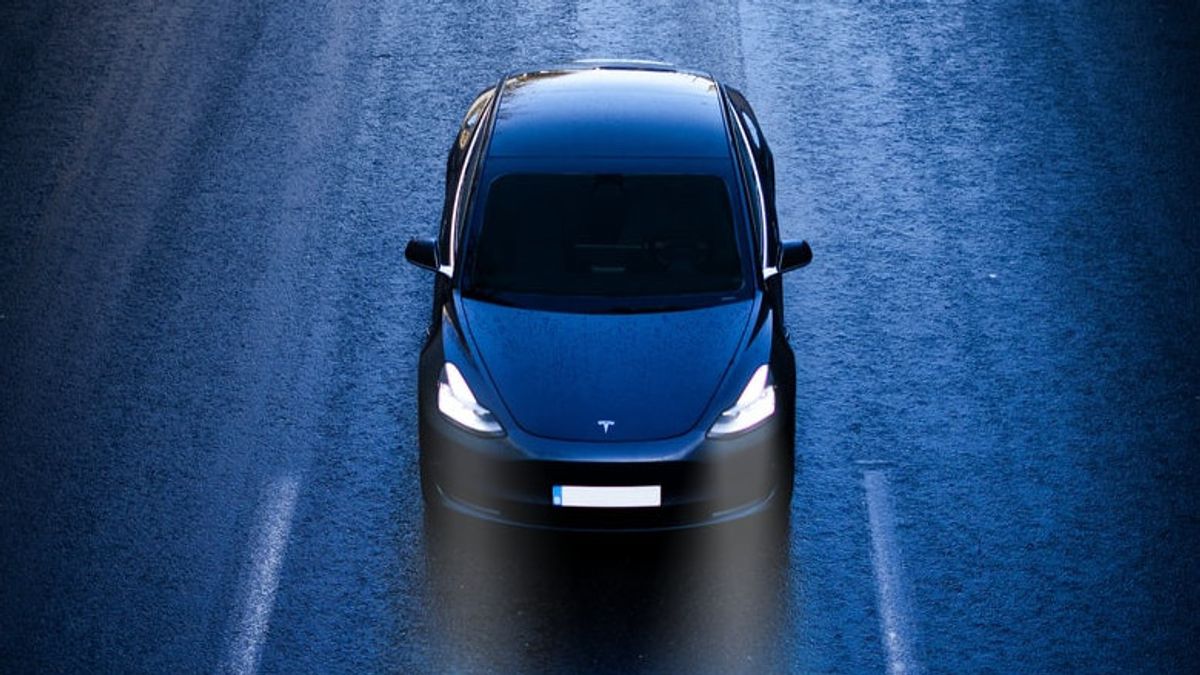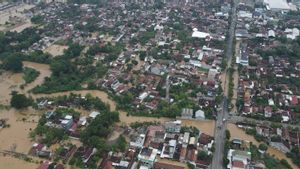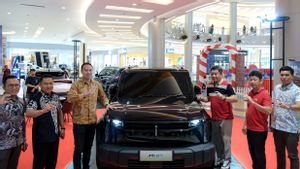JAKARTA - Tesla issued recall orders for more than 11.7 thousand of its vehicles due to a software error that caused the cars to activate the automatic emergency brakes for no reason.
Tesla recently also launched its Self-Driving Beta FSD software. This software allows Tesla cars to drive autonomously on highways or city streets under the full-time supervision of a driver.
The release of Tesla's self-driving software took months, and owners soon discovered that the update wasn't available to just anyone who owned a Tesla. Drivers interested in self-driving should request the software, and Tesla will begin a 2-week evaluation of how they drive to generate a "safety score."
The better the score, the greater the chance of getting an update. But the software itself is also rated and doesn't pass all the tests. Tesla CEO Elon Musk delayed the release of the software due to bugs when turning left at traffic lights, sudden braking, and false alerts.
Tesla announced the recall of 11,704 Tesla cars which includes the Model S, Model X, Model 3, and Model Y. All recalled vehicles share a common fault. They are vehicles running the 2021.36.5.2 firmware release.
Tesla explained that a software communication error could, "under a certain sequence of events," trigger a false forward collision warning and activate an emergency pause. The incident caught the attention of the federal agency, the NTSB's National Transportation Safety Board - which is already investigating Tesla for a series of incidents in which Tesla cars hit police vehicles.
Recall is one of the most dreaded words in the car industry. This step is not only expensive but can result in injury, death, lawsuits, as well as damage brand reputation and even lead to bankruptcy.
For example, in 2015, a massive recall affected 67 million cars worldwide when Takata airbags were recalled. The events affected Chrysler, Ford, GM, Cadillac, GMC, Chevrolet, Pontiac, Saab, Toyota, and others, costing the auto industry billions of dollars. Electrical and electronic systems used to account for only a small part of recalls, but now the number has doubled.
But Tesla managed to push this recall without taking a single car to be repaired or changed to their garage or repair shop. Tesla said it was "not aware of any injuries or accidents" related to the incident despite the increased danger and risk that arises when the emergency brakes are applied while driving. Tesla's recall was made in just three days!
On October 23, Tesla released an over-the-air beta firmware to some users. The following day the company began receiving reports of false forward collision warnings and emergency brake events that terrified drivers. The company put a team in place to quickly address these issues, look for bugs and cancel new software releases.
A few hours later, they identified the root cause and developed 2021.36.5.3 as a corrective solution. This version was released the following day, and Tesla said no action was needed from those affected.
While no one can argue that a car crashing into an unexpected emergency pause is serious, there were no injuries and no crashes, the three-day event, software bug, and software version update, compared to other recalls, are impressive ways to dealing with security and business..
The English, Chinese, Japanese, Arabic, and French versions are automatically generated by the AI. So there may still be inaccuracies in translating, please always see Indonesian as our main language. (system supported by DigitalSiber.id)













